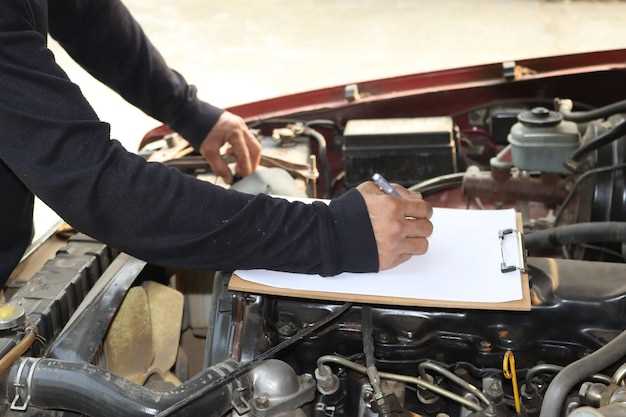
For car enthusiasts, understanding the market for classic vehicles is essential to ensuring that their prized possessions maintain or increase in value. Classic car appraisals serve as a crucial tool in this endeavor, providing owners with a clear picture of what their vehicles are worth in today’s economic landscape. Whether you are buying, selling, or simply wanting to know the worth of your collection, a professional appraisal can help guide your decisions.
In a world where classic cars can fluctuate in value based on trends, rarity, and condition, knowing how to navigate this market becomes vital. Factors such as documentation, history, and the overall appeal of the car can significantly influence its appraisal. This guide aims to equip enthusiasts with the insights necessary to understand the appraisals process, the key factors that affect a classic car’s value, and how to find reputable appraisers in the industry.
By preparing effectively and knowing what to expect, you can ensure that your classic car appraisal accurately reflects its place in the market. As we delve into the nuances of appraisals, remember that an informed enthusiast is a successful enthusiast.
Understanding the Different Types of Car Appraisals
When it comes to classic car appraisals, understanding the various types is crucial for enthusiasts. Each appraisal type serves a distinct purpose and can significantly impact the perceived value of a car. The main categories include retail, market, and insurance appraisals.
A retail appraisal focuses on the potential selling price of a car in a dealership setting. This type takes into account the vehicle’s condition, rarity, and demand among buyers. Enthusiasts should consider this appraisal when determining a fair list price during a sale.
The market appraisal is more comprehensive, evaluating the vehicle’s value based on comparable sales in the current market. Factors such as location, economic conditions, and specific buyer interests can influence this assessment. This type of appraisal is beneficial for both buyers and sellers who want to make informed decisions based on real-time market data.
Lastly, an insurance appraisal is essential for protecting your classic car. This assessment establishes the vehicle’s value for insurance coverage purposes. Accurate documentation is key, as it simplifies claim processes and ensures proper compensation in case of loss or damage. Enthusiasts should regularly update their insurance appraisals to reflect any modifications or changes in the car’s value.
Understanding these different types of appraisals can help classic car enthusiasts safeguard their investment and navigate the buying or selling process effectively.
Key Factors Influencing Market Value of Classic Cars

Determining the market value of classic cars involves a thorough appraisal process that takes various factors into account. Each of these elements contributes to the overall desirability and price of a classic vehicle.
- Condition: The physical state of the car is paramount. An appraiser will assess the exterior, interior, mechanical systems, and undercarriage for any signs of wear, damage, or restoration. Higher grades in condition often lead to increased market value.
- Rarity: Limited production models or unique variants typically command higher prices. The fewer the number of units produced, the more desirable the car is likely to be among collectors.
- Provenance: A well-documented history, including previous ownership, maintenance records, and significant events associated with the car, can enhance its market value. Unique stories or celebrity associations can further increase desirability.
- Market Trends: Current market demand for specific makes and models can significantly affect prices. Economic factors and collector trends can influence whether a particular car’s value is rising or falling.
- Originality: Cars that retain their original parts, paint, and accessories are often valued higher than those that have been heavily modified. Original specifications can attract collectors looking for authenticity.
- Documentation: Comprehensive documentation, including original sales brochures, manuals, and certifications, plays a vital role in appraisal. It provides proof of authenticity and performance, bolstering buyer confidence.
Understanding these key factors can help enthusiasts make informed decisions when buying or selling classic cars, ultimately impacting their market value and appeal in the collector community.
How to Choose a Qualified Appraiser for Your Vehicle

When it comes to assessing the value of your classic car, selecting a qualified appraiser is crucial for obtaining an accurate appraisal that reflects current market conditions. Here are key factors to consider in making your choice:
1. Experience in Classic Cars: Look for an appraiser with extensive experience specifically in classic cars. Their familiarity with various makes, models, and market trends will ensure that they can provide an insightful and well-informed appraisal.
2. Credentials and Certifications: Verify the appraiser’s credentials. Organizations such as the American Society of Appraisers (ASA) or the International Society of Appraisers (ISA) offer certification programs that indicate a recognized level of expertise. A certified appraiser is likely to adhere to professional standards which can significantly affect the accuracy of the appraisal.
3. Knowledge of Market Trends: A qualified appraiser should have a deep understanding of the classic car market. They must stay informed about changes in values, popular models, and collector demand to ensure that the appraisal reflects the current market scenario.
4. Sample Appraisals: Request to see samples of previous appraisals they have conducted. This will give you insights into their appraisal style and thoroughness. A comprehensive appraisal should include details like condition, originality, and any modifications that may affect value.
5. Reputation and Reviews: Research the appraiser’s reputation in the classic car community. Look for reviews, testimonials, or references from past clients. A strong reputation is often a sign of reliability and professionalism.
6. Fee Structure: Understand the appraiser’s fee structure. While the cost should not be the sole deciding factor, it’s important to know how they charge for their services–whether it’s a flat fee or based on an hourly rate. Transparency in costs is essential.
7. Personal Rapport: Lastly, choose an appraiser with whom you feel comfortable communicating. A good rapport will facilitate a more open exchange of information about your vehicle, ensuring that the final appraisal is both accurate and satisfactory.
By considering these factors, you can confidently select a qualified appraiser who will provide a thorough and accurate valuation of your classic car, ensuring you have a clear understanding of its market value.

